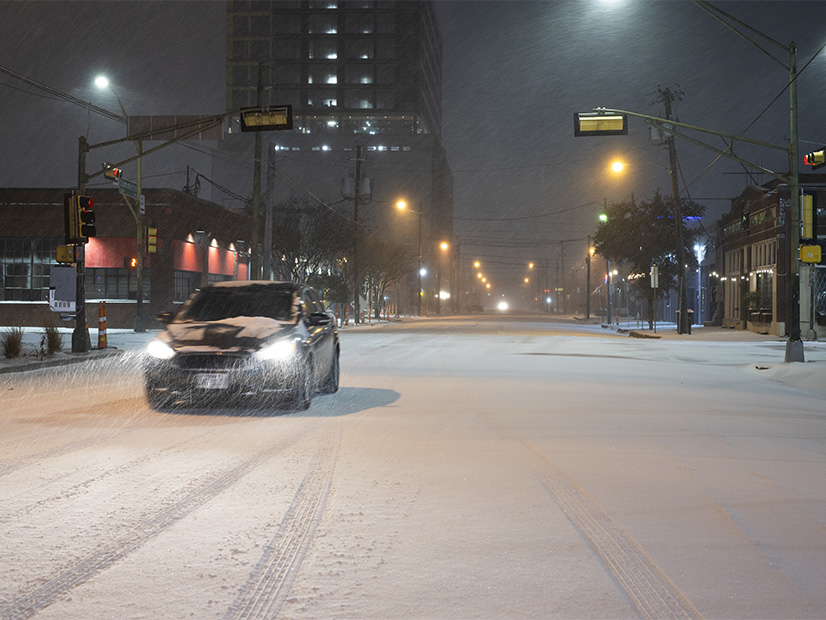
The Executive Committee of NERC’s Standards Committee (SCEC) voted to move ahead with NERC’s latest cold weather project, in what Standards Committee Chair Amy Casuscelli, of Xcel Energy, acknowledged to be an “unusual” open meeting Friday.
The SCEC currently comprises Casuscelli and Vice Chair Todd Bennett, of Associated Electric Cooperative Inc., along with Sarah Snow of Cooperative Energy, Venona Greaff of Occidental Chemical and independent member Philip Winston, formerly of Southern Co. Members voted to accept the standard authorization request (SAR) for Project 2021-07 (Extreme cold weather grid operations, preparedness and coordination) and appoint the SAR drafting team as the project’s standard drafting team (SDT).
With approval from the SCEC, the SDT can begin drafting the standard now, rather than wait for the Standards Committee’s next regular meeting, scheduled for March 23. The project is intended to carry out the recommendations of NERC and FERC’s joint inquiry into last February’s winter storms, including requirements for identifying and protecting cold weather-critical components, building and retrofitting generating units to operate to specific ambient temperatures and weather, and performing annual training on winterization plans. (See FERC, NERC Release Final Texas Storm Report.)
The “time-sensitive nature of the project” was the justification for the full Standards Committee delegating its authority over SAR approval to the SCEC at its meeting the previous week; SAR drafting team members wanted to “build on the momentum” of previous meetings so that any new standards could be implemented as quickly as possible. (See NERC Standards Committee Fast Tracks Cold Weather Project.)
At that meeting, Marty Hostler of the Northern California Power Agency was the only member to express misgivings about delegating authority; he worried that leaving the decision up to the SCEC would limit committee members’ ability to question the drafting team’s response to industry comments. Hostler again spoke up on Friday, the only member to do so.
Though he did not object to the SAR overall, Hostler did suggest that more could have been done to “resolve all expressed objections” from industry, and he questioned whether the drafting team could follow through on its promise to address issues raised in the comment period during the standards drafting process.
“There’s been numerous objections to at least one of the recommendations that are in the SAR, and that has been addressed [by] saying that they’re basically going to table it and send it back to NERC for consideration. However, experience has shown that [these issues] don’t get considered later,” Hostler said. “And when you’ve got a SAR that is close to or has been approved, then the legal [department] tells us, ‘Well, you can’t discuss that anymore; now you have to follow the SAR.’”
Specifically, Hostler pointed to the SAR’s proposed requirement for retrofitting existing generating units; despite this being one of the recommendations of the joint inquiry, Hostler pointed out that the measure had been “very contentious” and that even the SAR drafting team’s chair said it would “take a lot of time” to resolve. He suggested that this requirement be “bifurcated” into a separate standards project so as not to distract from the work of Project 2021-07, though he also acknowledged he was not sure how this could be done within the standards process.
“I know the Standards Committee can’t actually tell them to bifurcate it, but that is an issue, and it doesn’t have support, which is also required of a SAR. Now the concept does, I agree with that, but not the entire SAR,” Hostler said.



